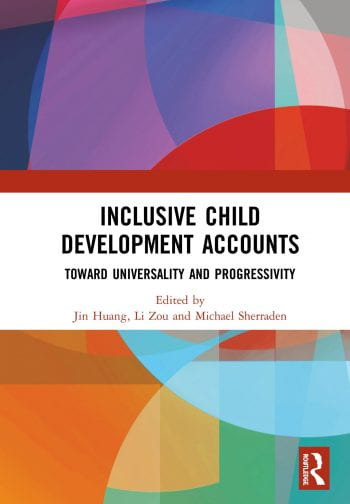Elliott, W., III. (2022, May). Economic security from an asset perspective (CSD Perspective No. 22-19). Washington University, Center for Social Development, and University of Michigan, Center on Assets Education, and Inclusion.
Author: admin
Inclusive Child Development Accounts: Toward Universality and Progressivity

Huang, J., Zou, L., & Sherraden, M. (Eds.) (2020). Inclusive Child Development Accounts: Toward universality and progressivity. Abingdon, UK: Routledge.
Five Dimensions of Climate Science Reductionism
Rigg, J., & Mason, L. R. (2018). Five dimensions of climate science reductionism. Nature Climate Change, 8, 1030-1032.
Forthcoming
Data will be displayed here when available.